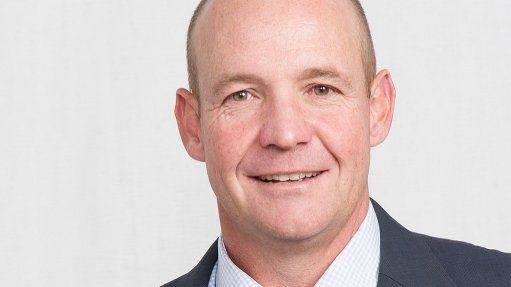
Cement producer PPC plans to finalise a new broad-based black economic–empowerment (BBBEE) road map in the coming six months in light of an anticipated five-level drop in its empowerment rating under the South African government’s new scoring system.
It also intends unwinding a BBBEE deal struck in 2008, owing to sustainability problems with the arrangement, which has associated debt of around R2.7-billion that would mature before the end of 2016.
For 2015, the JSE-listed group retained a level 2 rating under the Department of Trade and Industry’s BBBEE codes of good practice, with level 1 representing the highest ranking that can be secured. But once the certificate expires in December, PPC is likely to fall to level 7 under the revised rating system.
Speaking to Engineering News Online following the release of its 2015 results, CEO Darryll Castle admitted that it was “a big drop”. But he argued that PPC was unlikely to be alone in reporting a major decline in its empowerment rating in light of the fact that the new codes make it harder to score points than was the case previously.
PPC calculated its decline following a “like for like” comparison of the points it receives currently, compared with the points it was likely to attain under the new scheme.
“I think you are going to see a lot of companies experiencing this kind of drop. It’s because the codes are so much more onerous,” Castle said, indicating improving the group’s rating had been set as a high priority for the coming 12 months.
The road map would determine the BBBEE level PPC would be targeting and would set a timeframe, as well as a strategy for improving its position across the various components used to determine a company’s rating. Besides black ownership and control, firms were also scored on employment equity, skills development, enterprise and supplier development and social development.
“The target level we chose will have a cost and timeline associated with it . . . if we try get there faster, the cost will be higher,” Castle said, indicating that PPC’s aim would be to pursue a path that was “robust and sustainable”.
The 2008 transaction, which included strategic shareholders as well as employee and community participation, had run into sustainability problems as it had relied heavily on a positive trajectory in the group’s share price. In light of weak market conditions, PPC share price has been under sustained pressure and was more than 50% off the high recorded five years ago.
“Clearly, our share price has not performed to expectations,” Castle said.
But the transaction also included direct balance sheet support, which had resulted in PPC carrying the full liabilities for the transaction, which was leading to tax and cash-flow “leakage”.
“We need to restructure the scheme given that a lot of the debt is becoming due at the end of 2016,” Castle said.
In the 2008 transaction, 15% of its equity was sold to black investors for R2.7-billion in a deal that included strategic investors and employee and community trusts. The strategic investors – Nozala, Peu, iLima Portland Consortium and Capital Edge Cement Consortium – took up 7% of the company, while employees, an educational trust, a construction industry association trust and two community service groups were allocated 8.15%.
A R1.1-billion second phase BBBEE transaction was concluded in 2012, increasing PPC’s black ownership to 26%, as required by the Mining Charter to enable it to convert its old order mining rights to new order rights.
Castle stressed that PPC had not settled on a specific solution, but that it aimed to improve its rating materially from the position of level 7.
It would also be communicating its road map with the Department of Mineral Resources (DMR) to ensure that its mining licences were not affected.
“We will make sure that the DMR is completely on board and prove to them that we are operating within the spirit of the legislation. We don’t foresee that there should be any issues, because our intention is to ensure that the scheme is sustainable, which I think is what the DMR is looking for as well.”
He stressed, too, that the 26% BBBEE shareholding remained intact and that, while impeding actions could affect that position, the ultimate intention was to improve the position. But if the 2008 transaction was simply allowed to run its course “we would definitely then have an issue”.
Meanwhile, PPC reported a 2% rise in revenue for the year of R9.2-billion, despite a 2% decline in cement sales volumes. Net profit declined to R698-million from R840-million, while headline earnings a share fell 19% to 145c.
But PPC Africa’s operations made a record contribution and Castle said the group remained on track for these operations to contribute 40% of revenue by 2017 – they currently contributed about 28%.
The second half performance was also far stronger than the first, with its three-year profit improvement programme generating R212-million of the R400-million targeted.
Castle said it had not revised the target higher, but could decide to do so in the coming six months.